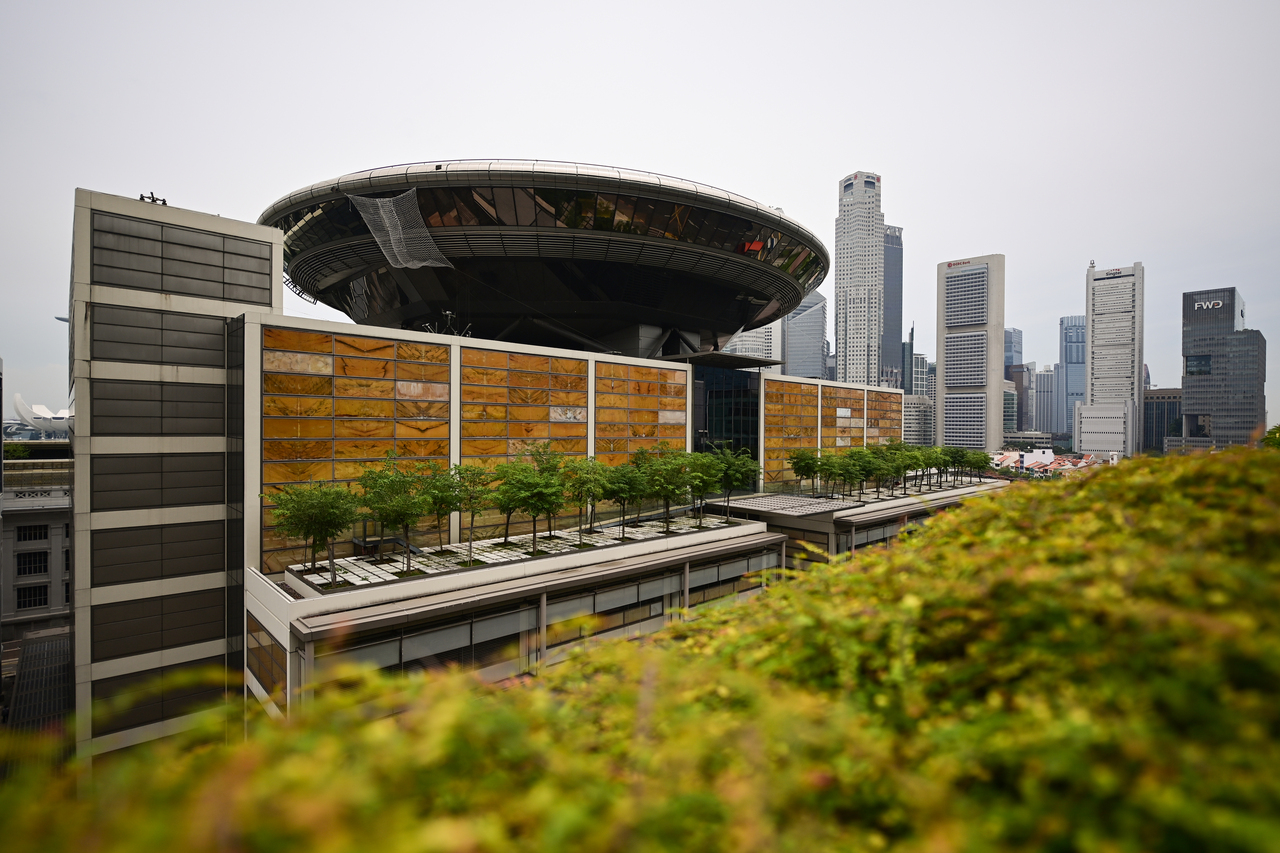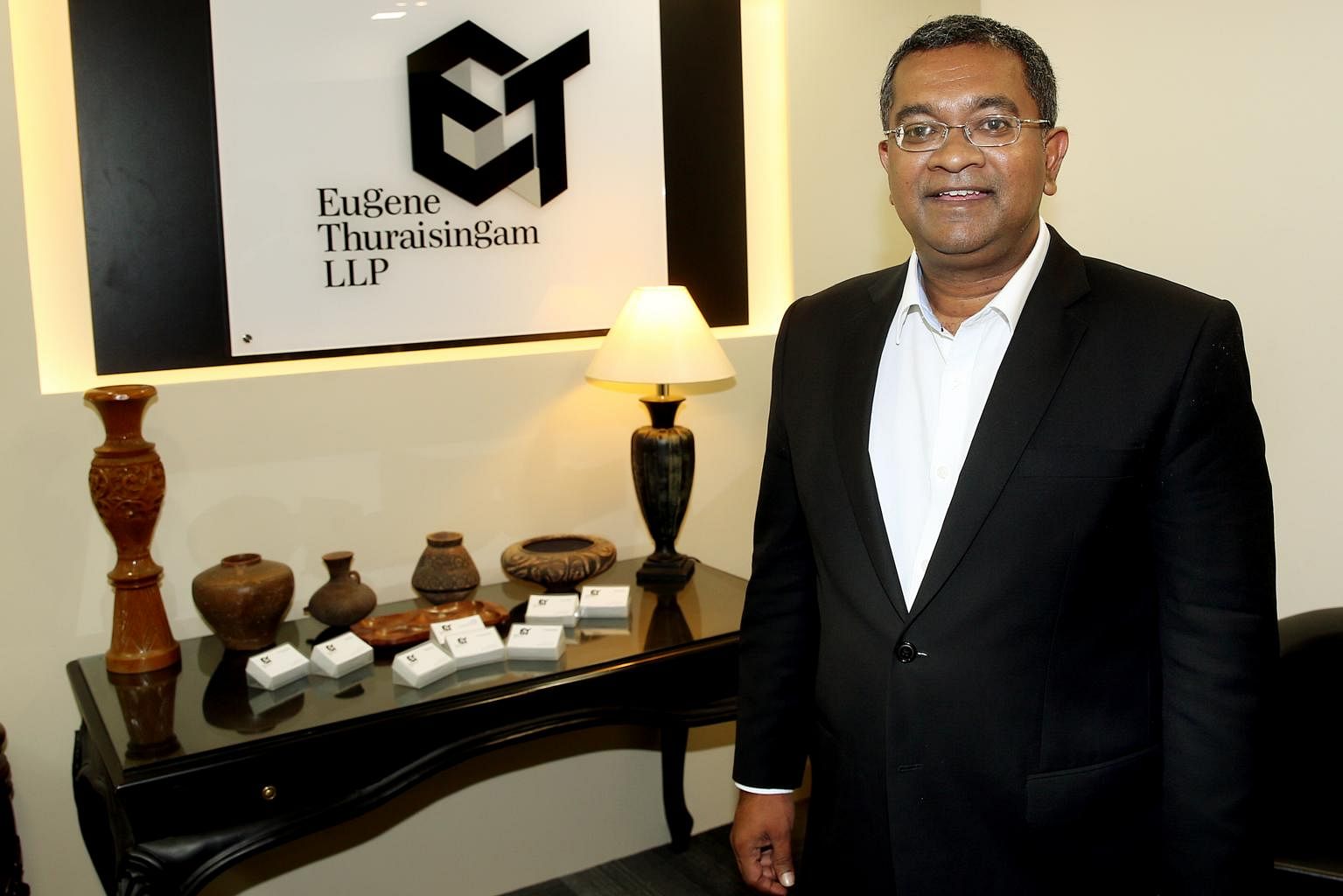Court of Appeal raps lawyer for 'hopelessly unmeritorious' application
Sign up now: Get ST's newsletters delivered to your inbox

The Court of Appeal concluded that the application, by lawyer Eugene Thuraisingam on behalf of his client Miya Manik, was "an attack on the integrity of the judicial process".
ST PHOTO: LIM YAOHUI
Follow topic:
SINGAPORE - The Court of Appeal has rapped a lawyer over an application in which he claimed his client had suffered an injustice because of the 3½-year gap between his arrest and trial.
The application, filed by counsel Eugene Thuraisingam on behalf of his client, Bangladeshi national Miya Manik, was "clearly and hopelessly unmeritorious", said the apex court.
If not for the lawyer's unreserved apology, he would have been referred to the Law Society of Singapore for disciplinary action, the court said last Wednesday (Sept 22) in its grounds of decision.
"The next time this happens, even an apology may not avert this course," it added.
The application was to adduce two medical reports as evidence to support Manik's appeal against his sentence for voluntarily causing grievous hurt by dangerous weapons or means pursuant to a common intention.
He was initially charged with murder, but was acquitted by the High Court and convicted instead of the grievous hurt offence in June last year after a trial. He was 31 at the time.
Manik had claimed the reports will support his case that he developed an adjustment disorder because of the time gap between his arrest in September 2016 and his trial, which started in January last year.
Among other things, he said the gap was "prejudicial to him", and that he had therefore suffered "manifest injustice".
Manik had attacked Bangladeshi national Munshi Abdur Rahim, 32, in 2016 with two other men.
Both Manik and the victim, who later died of his injuries, were from rival contraband cigarette syndicates.
After his acquittal for murder and conviction for voluntarily causing grievous hurt, the High Court sentenced him to 15 years' jail and 15 strokes of the cane.
The prosecution then filed an appeal against the court's acquittal of Manik for murder, while Manik appealed against his sentence for the grievous hurt offence.
Both appeals are still pending.
Manik filed the application to adduce the medical reports on Jan 14 this year.
According to the reports, he has been suffering from adjustment disorder and is taking various types of medication as treatment.

Manik had argued that he developed the disorder because of the "unwarranted" delay between his arrest trial, and the weight of a potential death sentence hanging over him.
But the Court of Appeal dismissed the application, saying the reports were not legally relevant, or reliable, or admissible.
Among other things, it noted that the two reports - each a page long - lacked any explanation on how Manik came to be diagnosed with adjustment disorder.
They also did not state any causal link between the purported delay between his arrest and his trial, and his alleged disorder, said the court.
The apex court additionally noted that the purported disorder was not raised before the High Court even as it was alleged to have fully manifested by January last year.
The Court of Appeal concluded that the application was "an attack on the integrity of the judicial process".
It was a backdoor attempt to introduce the issue of Manik's adjustment disorder that could and should have been raised at the earliest instance, said the court.
The application also demonstrated a disregard for how the criminal appeal process is "typically and by design unidirectional."
"An appeal should typically not be protracted and shunted back and forth between the trial and appellate courts. Mr Thuraisingam knows this," the court said.
"He must have known that by raising a previously unconsidered mental illness at the appeal stage, if it was relevant, then it would likely have resulted in the issue being remitted to the trial court."
This would have required time and an adjournment of the case's two pending appeals, the court said.
"Taken together with the patently untenable state of the evidence, it seemed fair to us to question whether (the application) had been filed for ulterior purposes."
Citing previous cases, the Court of Appeal said a lawyer who filed an unmeritorious application on behalf of a client may be guilty of professional misconduct.
"Much will depend on how patently unmeritorious the application is and on whether counsel can offer a satisfactory account for filing the application," the court added.
"The fact that the accused person faces dire consequences, even a capital sentence, cannot and will not justify counsel filing ill-considered and baseless applications."

